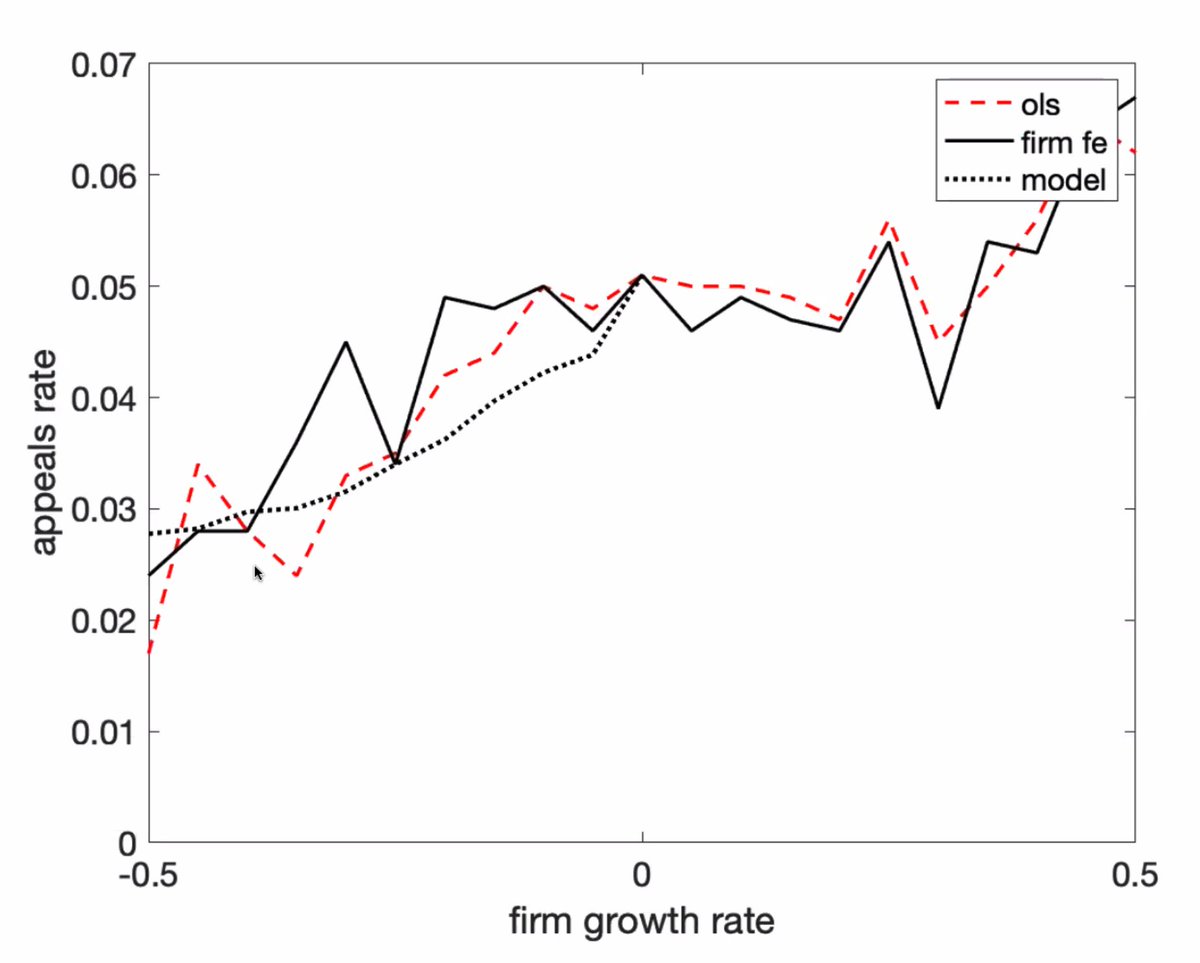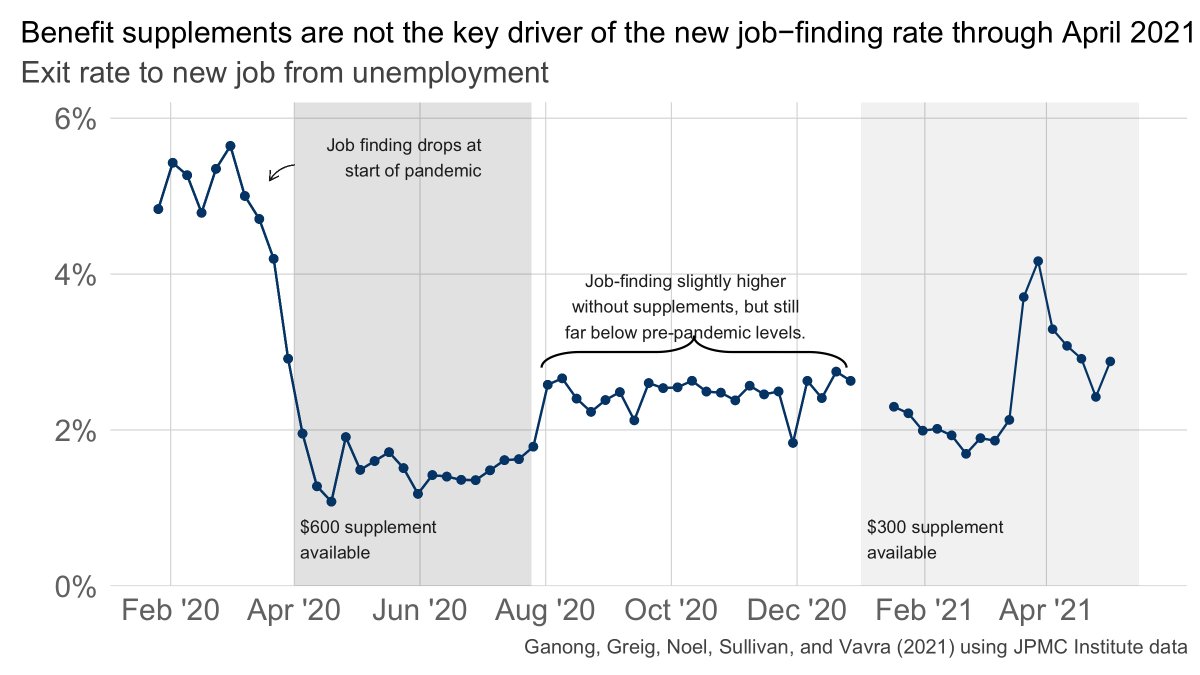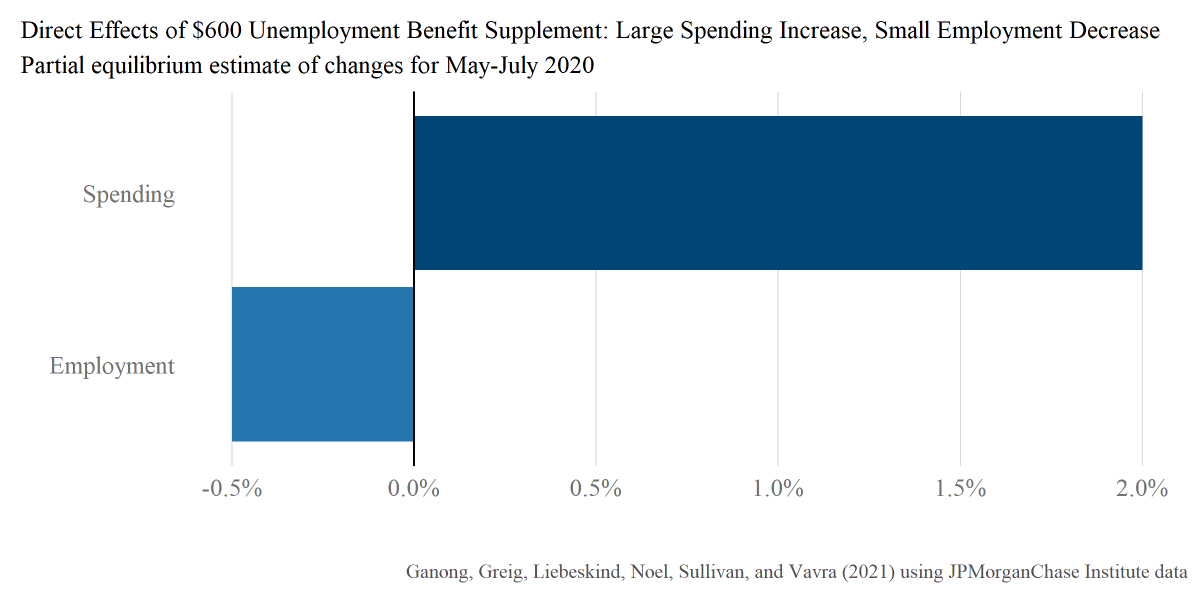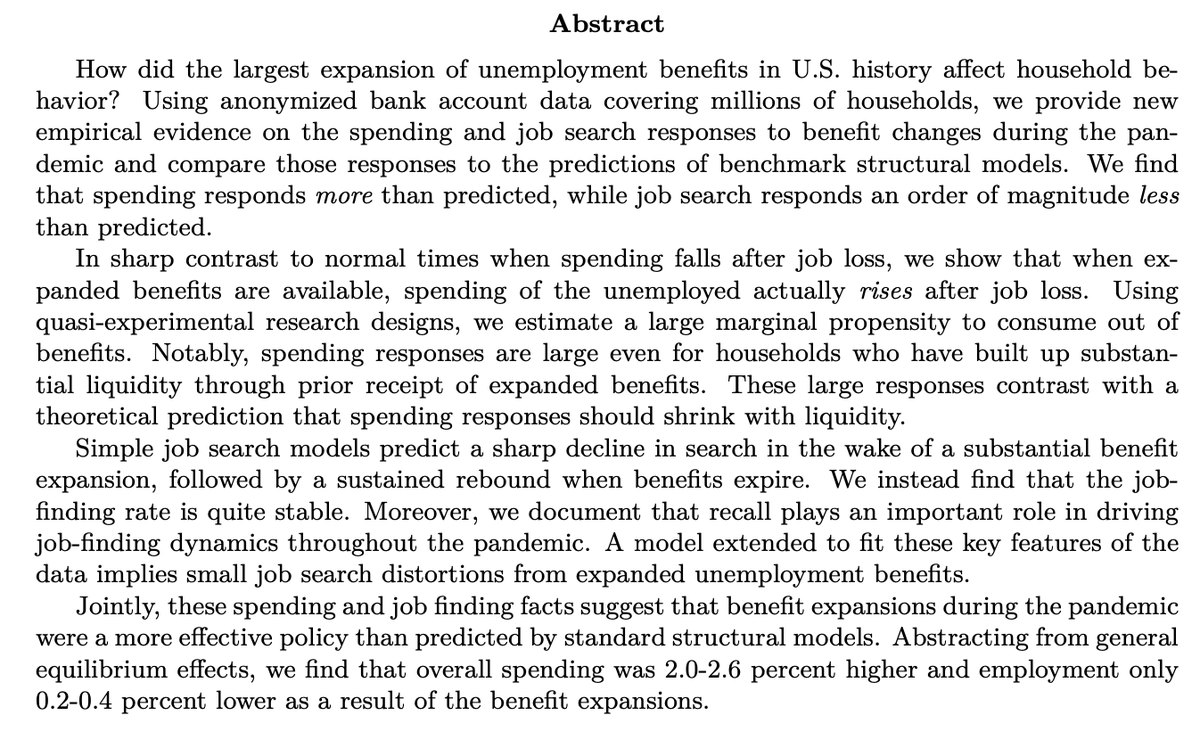
Why is UI hard to access?
Most policy discussions (rightly) focus on issues of state capacity.
Amazing paper by Sorkin, Lachowska, and Woodbury focus on *firms* who make it hard to get UI and the seamy underbelly of experience rating.
Most policy discussions (rightly) focus on issues of state capacity.
Amazing paper by Sorkin, Lachowska, and Woodbury focus on *firms* who make it hard to get UI and the seamy underbelly of experience rating.

I think of this as the academic paper which captures @IndivarD's political economy model of a major problem with the UI system
Experience rating is the system where firms that lay off more workers pay more in UI taxes.
Goal: discourage layoffs
Goal: discourage layoffs
But there's a catch: experience rating also encourages firms to appeal. If a firm doesn't pay a UI claim, then it doesn't get taxed on it.
Firms that are shrinking a lot do not have this disincentive and also do not appeal nearly as often.
Firms that are shrinking a lot do not have this disincentive and also do not appeal nearly as often.
This strongly suggests that experience rating is driving firms to appeal.
Policy implication (h/t @IndivarD): UI would be a lot easier to access if there was less experience rating
Policy implication (h/t @IndivarD): UI would be a lot easier to access if there was less experience rating
Full paper here: conference.nber.org/conf_papers/f1…
I didn't see the authors on twitter, but plz tag them in the comments
I didn't see the authors on twitter, but plz tag them in the comments
• • •
Missing some Tweet in this thread? You can try to
force a refresh










